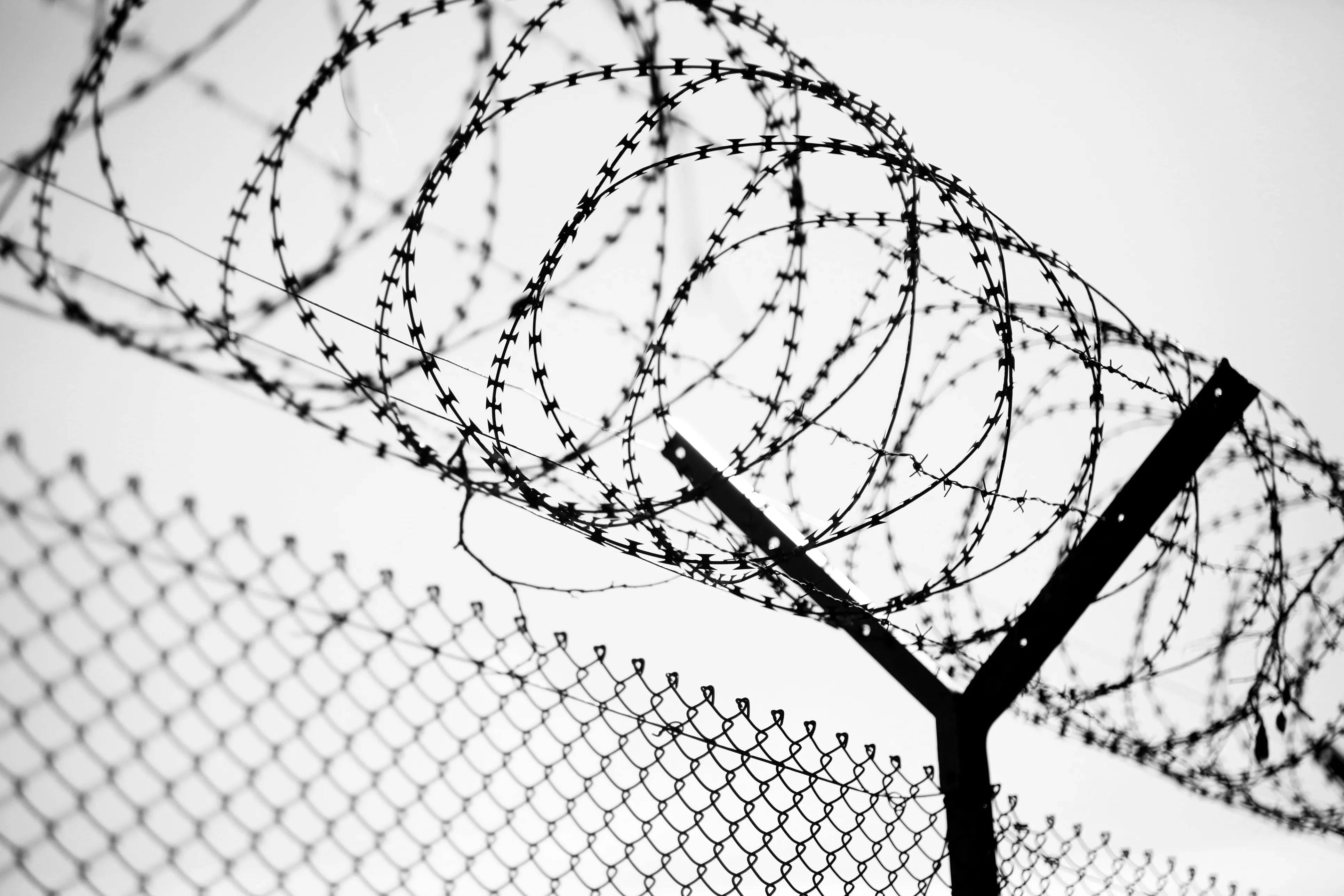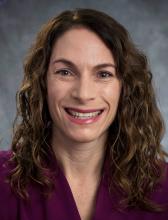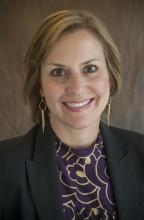‘A Whole New Environment’

During a one-week period in April, Elisabeth Mayer, ’20, helped write 63 pages of motions aimed at convincing a federal judge to grant compassionate release to a 65-year-old man at FCI Butner, a prison in North Carolina experiencing one of the federal system’s biggest COVID-19 outbreaks.
Working six to 10 hours a day, Mayer, a student in the Law School’s Federal Criminal Justice Clinic, researched, wrote, and revised. She closely monitored rising illness numbers and evolving government guidance, conferred with classmates, and incorporated feedback from clinic Director Alison Siegler and Associate Director Erica Zunkel. As the case progressed, Professors Siegler and Zunkel filed the finished briefs in rapid succession: a 30-page emergency motion on April 15, a nine-page status report and prison release plan on April 16, a 15-page supplemental brief on April 17, a nine-page update on April 20.
Even by the rigorous standards of the Federal Criminal Justice Clinic, the only legal clinic in the country exclusively representing indigent clients charged with federal felonies, this was a staggering pace.
“I've worked under pressure before, but this was different,” said Mayer, who also kept up with two other classes. “Working on a genuine crisis is different than studying for an exam or even from other litigation projects I've worked on.”
The stakes were high: COVID-19 was spreading quickly at Butner—50 inmates and 27 staff had been infected by April 20 and five had died—and Mayer’s client was particularly vulnerable. The man, who had served more than 80 percent of a 40-month sentence for fraud, had a long history of viral pneumonia and was still recuperating from his latest bout. Recent tests suggested that he likely had prostate cancer, too.
Mayer, who had been assigned to the case at the beginning of April, had days rather than weeks to get up to speed, and sometimes only a day to reply to the court. Two classmates, David Silberthau, ’21, and Alex Aparicio, ’21, provided research and support while also working on other cases.
“Usually we handle an individual case from start to finish, so although we typically have really busy periods, cases have a chance to evolve over time,” said Zunkel, who along with Siegler is overseeing six coronavirus-related compassionate release cases this quarter. “Now we’re asking our students to become intimately familiar with cases that have already been completely litigated. They need to read all the pre-sentence reports and the filings and, in some cases, reach out to family members and friends to determine a release plan. It’s a huge amount of work in a very short period of time.”
The project was part of a quick pivot by Siegler, who founded the clinic in 2008, and Zunkel, who joined the clinic in 2012. As the coronavirus pandemic took hold, urgent needs emerged in the federal criminal justice system just as other clinic projects—including a federal trial that had been set for May—were postponed. Siegler and Zunkel assessed students’ preferences and then divided them into two categories: 11 would form a COVID-19 response team, and another half a dozen would continue working on existing projects, supervised by Judith Miller, an associate clinical professor in the clinic.
“We needed to acknowledge that we were in a whole new environment that was creating massive hardships for people in the federal criminal system,” Siegler said. “We thought about where we could be most useful, and what would give our students the best pedagogical experience.”
She then reached out to the federal public defender’s office in Chicago, where Amanda Penabad, ’12, a former FCJC student, was overseeing the COVID-19 response, including an effort to identify people who had been convicted of federal crimes in Chicago and were now particularly at risk of acquiring the virus in prison.
The students started by digging through court records. “We looked for mentions of health issues that would put the person at a higher risk of developing really serious complications from COVID-19, and we identified urgent cases, also taking into consideration how fast the virus was spreading at various [Bureau of Prisons] facilities,” Zunkel said.
Once the clients had been identified, the clinic agreed to take on six of the cases. From the start, they confronted a variety of challenges, from figuring out how to send faxes without access to a fax machine to making contact with clients in locked-down facilities to gathering information without in-person meetings.
“Often we’re getting information second- and third-hand through family members,” Aparicio said of her primary client, who is incarcerated at a private facility in Michigan without access to email.
Although Aparicio and the rest of the team can contact the facility to schedule phone calls with their client, each call requires their client to come into contact with both prison staff and, of course, the phone.
“He’d be escorted out of his cell, and then use a phone that probably hasn't been disinfected,” Aparicio said. “That means that whenever we need a little detail [from the client] for our motion, we have to weigh [the decision to schedule a call] against the risk to his health.”
Quarantine policies at Butner created an extra layer of frustration for the legal team. Even once the judge recommended that the client be transferred to home confinement—the alternative request if compassionate release wasn’t granted—the Bureau of Prisons mandated that he remain in quarantine at the prison for 14 days before release. But shortly after the order, others in quarantine developed symptoms of COVID-19—and the clock restarted.
The FCJC’s client, Richard Thompson, was ultimately transferred to home confinement on April 29.
A few days later, Thompson wrote a letter to the executive director of the Chicago Federal Defender Program expressing his gratitude for the connection to Siegler and Zunkel.
"Their assistance, persistence, and relentless advocacy allowed me to be writing you this letter from the safety of the home to which I have been released," he wrote. "They were truly phenomenal. Clearly my Judge intervened to get me out, but Alison and Erica provided crucial details in a manner which allowed him to understand the situation at Butner and take action. What they accomplished was nothing short of a miracle."
Mayer said the news of Thompson's release "felt incredible" and allowed her to see the "the difference zealous advocacy can make.”
The work fostered a heightened sense of camaraderie, as students discussed developments, shared strategies, and offered each other support. When the Butner case heated up, classmates “really stepped up to help,” Mayer said.
For Siegler and Zunkel, the work has given them a chance to see their students rise to unexpected challenges.
“They’ve really been able to put the pedal to the metal and show us what they can do,” Siegler said. “That's what Elisabeth did—she came through at every turn, even as she was juggling her other classes.”
The crisis has also underscored the need for criminal justice reform, particularly in regard to combating mass incarceration, Siegler and Zunkel said.
“This is something Alison and I have been advocating for our entire careers: People are receiving sentences that are draconian and much too long, and I hope this pandemic is going to teach us that we don't have to do that in order to protect public safety,” Zunkel said. “We don't need people who are over 65 and have serious health problems serve their last, dying days in prison. It doesn't help them, it’s not humane, and it doesn’t make our society safer.”
The virus’s spread in prisons and jails is “a reminder that we are all interconnected,” Siegler added. “The virus doesn’t usually enter the jail or the prison through the people who are incarcerated. It goes in through the staff, the officers, the medical staff—and it comes out that way, too. I think it's helpful to see the permeability of these boundaries. Even if people don't care about incarcerated people—and we hope people do—they should care about their own safety.”



